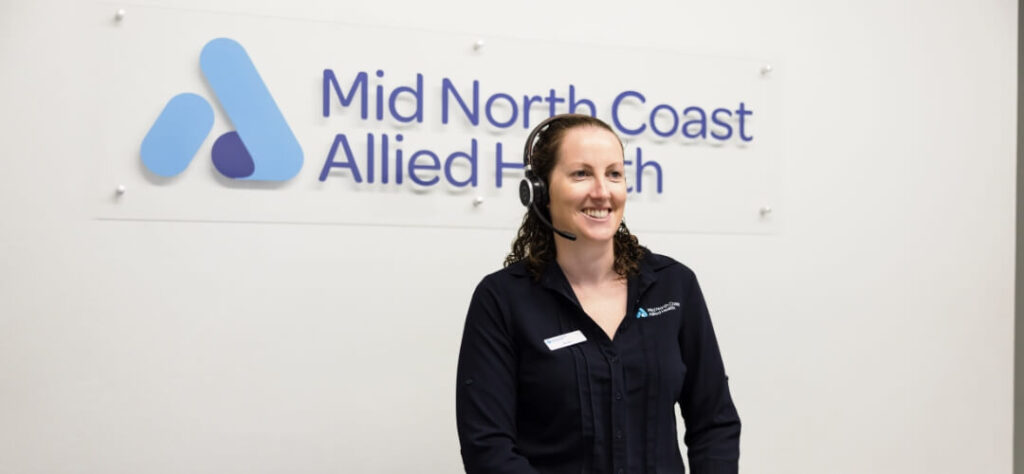The National Disability Insurance Scheme (NDIS) is a crucial part of Australia’s social welfare system, offering a new way of providing individualised support to people with permanent and significant disabilities.
Unlike traditional disability support systems, the NDIS recognises the unique needs of each person, offering them the flexibility to use their allocated funds for support and services that will most effectively assist them in achieving their personal goals.
This person-centred approach ensures that participants have the autonomy to decide how to best manage their support, reflecting a significant shift towards empowering individuals with disabilities in Australia.
What is NDIS?
The NDIS is designed to assist Australians living with a significant and ongoing disability by providing the financial support necessary for them to access the services and support they need to live more independently and achieve their personal goals.
Unlike previous systems, the NDIS allocates funding directly to individuals, allowing them to choose how and where they spend their allocated funds to best meet their needs. This personalised approach acknowledges the varied nature of disabilities and the different types of support that individuals may require.
Whether it be physical therapy, personal care, assistive technology, or modifications to their home environment, funding is available to help. The scheme is a commitment to empowering individuals with disabilities, offering them opportunities to participate fully in social and economic life.
Who is Eligible for NDIS Funding?
Eligibility for the NDIS is specifically targeted at Australian residents who have a permanent and significant disability that affects their ability to perform everyday tasks. This includes people of any age up to 65 at the time of application.
Applicants must be Australian citizens, hold a Permanent Visa, or a Protected Special Category Visa. The scheme looks at whether the individual’s disability substantially reduces their ability to participate effectively in activities or perform tasks or actions unless they have:
- Assistance from other people
- The use of assistive technology or equipment
- And/or can benefit from support to reduce future needs.
This eligibility criteria ensures that support is provided to those who most need it, facilitating a more inclusive and accessible society for all Australians with disabilities.
How to Apply for NDIS?
Applying for the NDIS involves a detailed process starting with verifying eligibility through a checklist provided on the NDIS website. Once potential eligibility is determined, individuals or their guardians must submit an Access Request Form, along with supporting evidence of their disability.
This evidence includes reports from treating health professionals and may cover the nature of the disability, how it impacts the individual’s life and the kinds of support that would help improve their independence and well-being. The NDIS may also require an assessment to understand the person’s needs better.
The application process is a critical step in accessing personalised support, and the NDIS provides resources and assistance to help applicants navigate this process smoothly.
How Does NDIS Work?
The National Disability Insurance Scheme (NDIS) represents a fundamental shift in the way support is provided to Australians with disability, their families, and caregivers. It’s designed to empower individuals by offering them choice and control over the support they receive, fostering greater independence and inclusion in their communities and across various aspects of life.
Wondering How is NDIS funded?
The NDIS is funded through a partnership between the Australian federal, state, and territory governments. It operates on an insurance principle, which means that funds are pooled and then allocated to NDIS participants based on their individual needs.
This funding approach ensures the long-term sustainability of the scheme and allows for flexibility and responsiveness to the changing needs of participants. Funding is allocated in a participant’s plan, covering various supports and services that contribute to achieving personal goals and improving quality of life.
Types of Supports and Services
The NDIS funds a wide range of supports and services tailored to the individual needs of participants. These can include personal care to assist with daily activities, professional services like physiotherapy or occupational therapy, modifications to homes and vehicles, and assistive technologies such as wheelchairs and communication devices.
Support is categorised into three areas: core supports for daily living, capacity building for achieving goals, and capital support for significant investments like assistive technology. The diversity of funded supports underlines the NDIS’s commitment to providing comprehensive and personalised assistance, enabling participants to lead richer, more independent lives.
Creating an NDIS Plan
Creating an NDIS plan is a pivotal step in accessing support through the National Disability Insurance Scheme. This personalised plan is crafted to reflect the individual’s current needs, personal goals, and aspirations for the future. The planning process involves a collaborative discussion with an NDIS planner or local area coordinator, where participants are encouraged to think about their daily life, the support they currently receive, and any additional support they might need to achieve their objectives.
Managing NDIS Plan
Participants of the NDIS have the flexibility to manage their plans in a way that best suits their needs. They can choose to self-manage their funds, have a plan manager, or let the NDIA manage the funding. Self-management offers the most control, allowing participants to directly pay for services and take charge of their support arrangements.
Plan management is a hybrid option where a third party manages the financial aspects, and NDIA management means all dealings are handled directly by the agency. Each option has its benefits, and participants can select the method that aligns with their preferences and abilities to manage their plan effectively.
Changing Your Plan
Plans are meant to be dynamic, reflecting the changing needs and goals of NDIS participants. Participants can request a plan review at any time if their circumstances change or if they feel their current plan does not adequately meet their needs.
This process involves reassessment and possibly adjusting the types and levels of support funded by the NDIS. The flexibility to change plans ensures that individuals continue to receive relevant and effective support as their lives evolve.
What Happens After Applying?
Once an application is submitted and approved, participants will work with an NDIS planner or local area coordinator to develop their personalised NDIS plan. This plan outlines the individual’s goals and the specific supports funded by the NDIS to achieve these objectives.
Implementation involves choosing service providers and managing the funding according to the plan’s stipulations. The process from application to receiving support is designed to be as smooth and user-friendly as possible, with various resources available to guide participants every step of the way. Book an appointment.
FAQ
Is NDIS only in Australia?
Yes, the NDIS is an Australian government initiative specific to Australia. It is designed to support Australians with permanent and significant disabilities by providing them with the necessary supports to live independently and engage in their communities.
Can NDIS be used overseas?
NDIS funding is generally not intended for use overseas. The primary focus of the NDIS is to support participants within Australia to access local services and supports. However, there may be specific circumstances under which certain aspects of a plan can be utilised overseas, but these are exceptions rather than the rule.
What are NDIS Contacts?
NDIS contacts include a range of support personnel who can assist individuals in navigating the NDIS. This includes Local Area Coordinators (LACs), who help people understand and access the NDIS, and Early Childhood Early Intervention (ECEI) partners, who specialise in support for children aged under 7.
For more complex or specific needs, participants might also work with specialised support coordinators. These contacts are crucial in providing guidance and assistance, ensuring participants can make the most of their NDIS plans.
How to Meal Prep Recipes for a Healthy Week
Embarking on a journey towards a healthier lifestyle can often feel like an uphill battle, fraught with time constraints and dietary dilemmas. However, with a bit of planning and creativity, meal prepping can transform this challenge into an achievable — and maybe...
Concussion Treatment: Tips for a Smooth Recovery
A concussion is a type of brain injury that can have serious physical, cognitive, and emotional implications—Especially if left untreated. Whether you're an athlete, office worker, or caregiver, it's important to understand the signs, symptoms, and recovery process...
What is Exercise Physiology? All You Need to Know
Join us as we delve deep into the world of exercise physiology, unravelling how our bodies respond and adapt to physical activity and the science behind these changes. We will introduce you to the expertise of exercise physiologists who craft personalised exercise...







